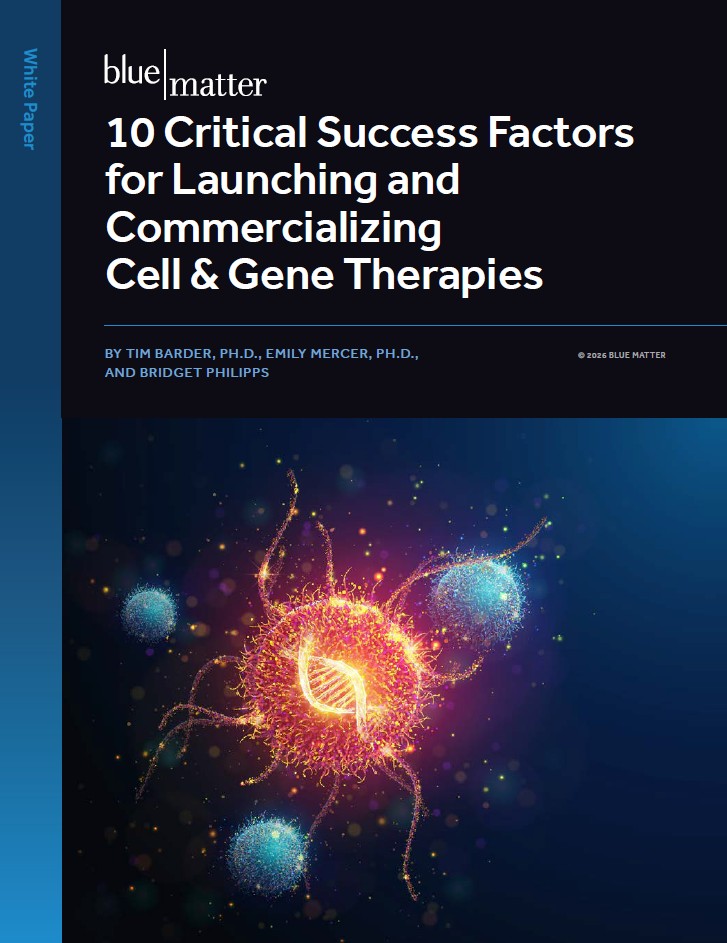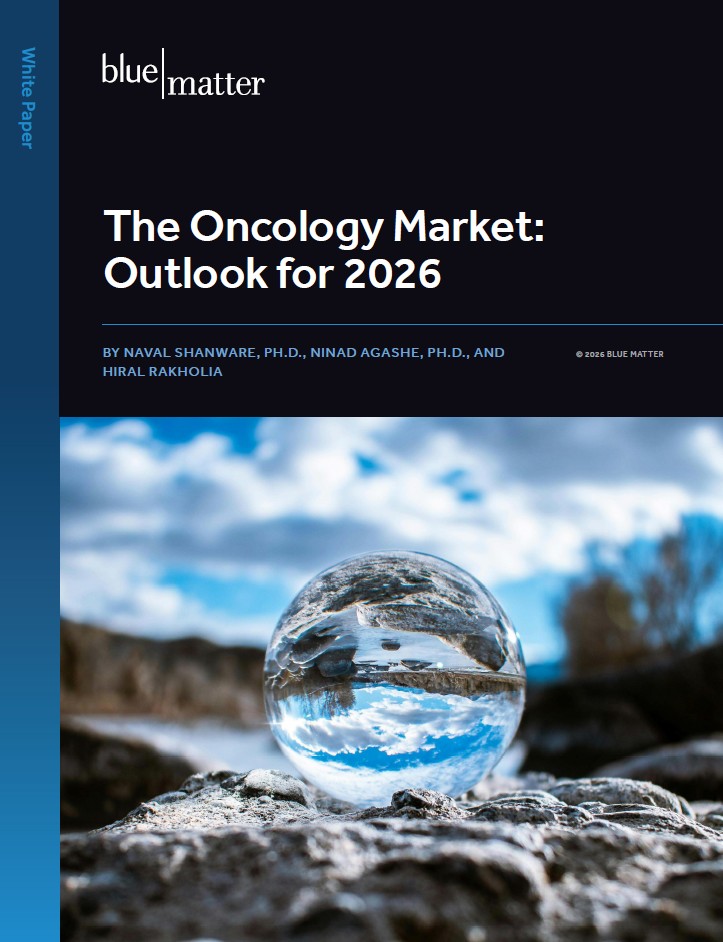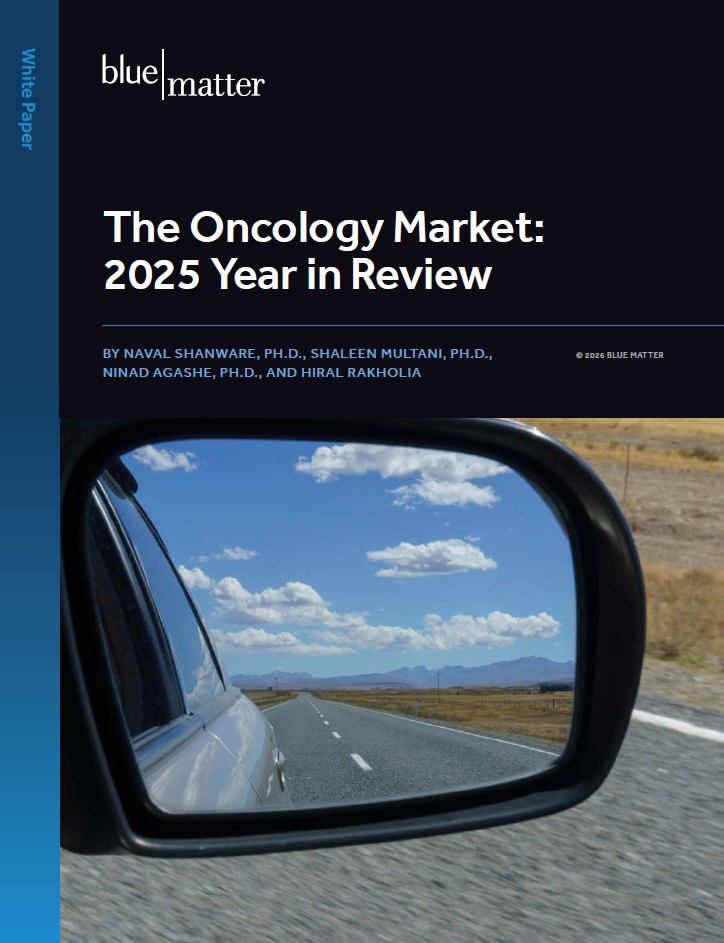
Blue Matter team members Chirag Ghai, Ana Fonceva, and Cameron Wong provided writing and editorial support for this paper, by Nagasaka, M., Roy, U. B., Berk, A., Liu, G., Nadler, E., & Abrahami, D. (2025).
ABSTRACT
With the ongoing discovery of various oncogenic driver mutations in metastatic non-small cell lung cancer (mNSCLC), a precision medicine approach has emerged, characterized by targeted therapies for select patient populations. Randomized controlled trials (RCT) remain the gold standard for evaluating efficacy and safety of such therapies; however, RCTs evaluating treatments for rare oncogenic drivers still face limitations, given small populations, potentially long-time horizon for outcome events to occur, and underrepresentation of certain subgroups. For these targeted therapies, the complementary nature between real-world evidence (RWE) and RCT may expand the totality of evidence available, to better inform treatment decision-making. In particular, treatments for rare oncogenic drivers can benefit from RWE that provides additional, generalizable clinical insights for subgroups underrepresented or ineligible for RCT, or confirms outcomes observed in RCT. As a discipline, RWE has seen significant advances in methodology and healthcare stakeholder acceptability, with potential for even greater innovation, and presents a valuable opportunity to support decision-making around access and use of targeted therapies for rare oncogenic drivers in mNSCLC.
Access the full paper here: https://doi.org/10.1080/14796694.2025.2475728 or get a PDF version here.








